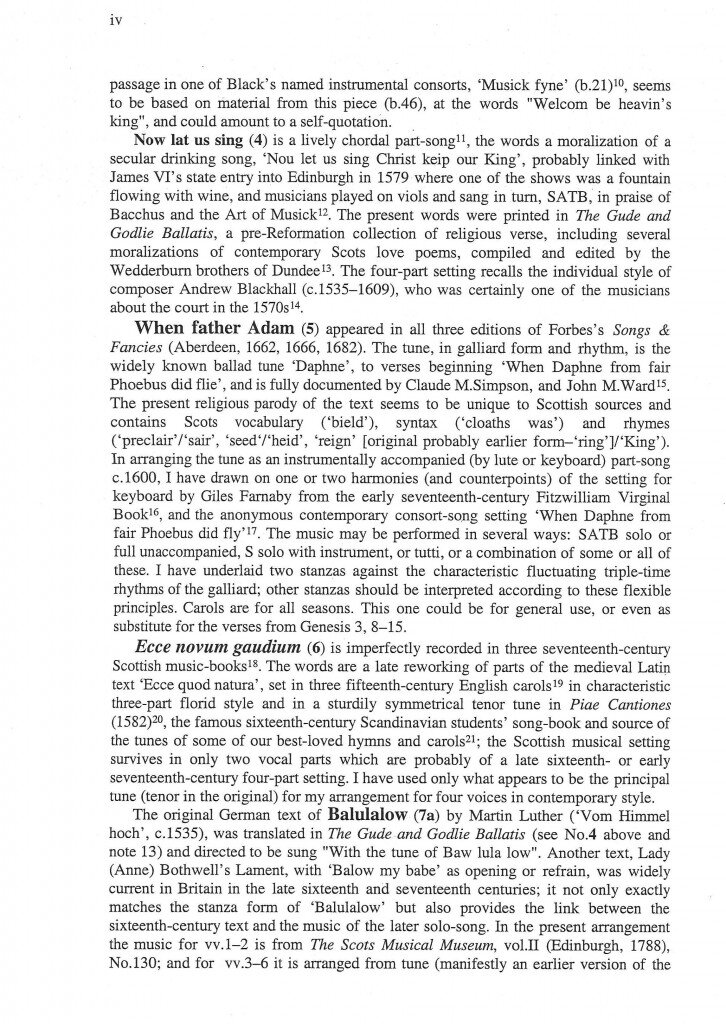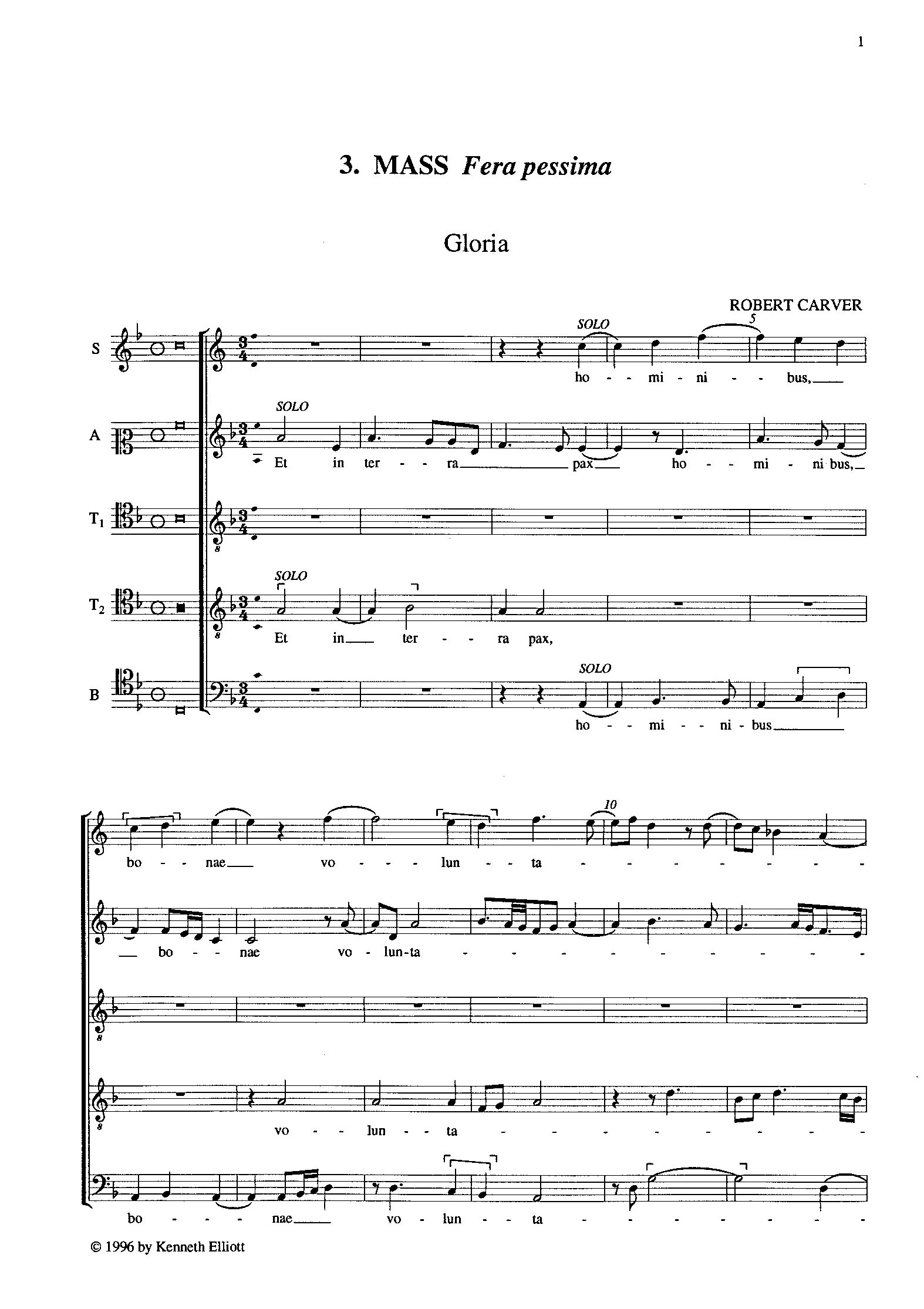 Image 1 of 2
Image 1 of 2

 Image 2 of 2
Image 2 of 2



Musica Scotica Vol VIII: Robert Johnson - Ad te levavi [download]
Edited by Elaine Moohan and Kenneth Elliott.
Ad te levavi survives in only two outer parts, Cantus and Bassus, from different sets of partbooks, with only these few words as the incipit in the latter. In searching for an appropriate text to match these parts, that of Psalm 122, Ad te levavi oculos meos, is the most likely to have been used. The source of the Bass part, describes the piece as being for four voices, so I have attempted a reconstruction of the inner parts (SATB). What emerges is remarkably close to Johnson’s other extended settings of Latin Psalm texts of the 1540s: the consistently applied imitation, the chordal passages, and the triple-time section strikingly recall Johnson’s motet Deus misereatur nostri; and the structural device of partial recapitulation of the opening bars as a coda also occurs in both of Johnson’s settings of Domine in virtute tua.
From Musica Scotica Vol VIII: The Complete Works of Robert Johnson, the full volume available here.
12pp. Available as downloadable pdf with licence to print multiple copies for rehearsal and performance.
Edited by Elaine Moohan and Kenneth Elliott.
Ad te levavi survives in only two outer parts, Cantus and Bassus, from different sets of partbooks, with only these few words as the incipit in the latter. In searching for an appropriate text to match these parts, that of Psalm 122, Ad te levavi oculos meos, is the most likely to have been used. The source of the Bass part, describes the piece as being for four voices, so I have attempted a reconstruction of the inner parts (SATB). What emerges is remarkably close to Johnson’s other extended settings of Latin Psalm texts of the 1540s: the consistently applied imitation, the chordal passages, and the triple-time section strikingly recall Johnson’s motet Deus misereatur nostri; and the structural device of partial recapitulation of the opening bars as a coda also occurs in both of Johnson’s settings of Domine in virtute tua.
From Musica Scotica Vol VIII: The Complete Works of Robert Johnson, the full volume available here.
12pp. Available as downloadable pdf with licence to print multiple copies for rehearsal and performance.













![Musica Scotica Vol VIII: Robert Johnson - This is my commandment [download]](https://images.squarespace-cdn.com/content/v1/5f3690f6995b741710ab4824/1613147258946-XTD7325M3GWOUIYHXMDJ/image-asset.png)

